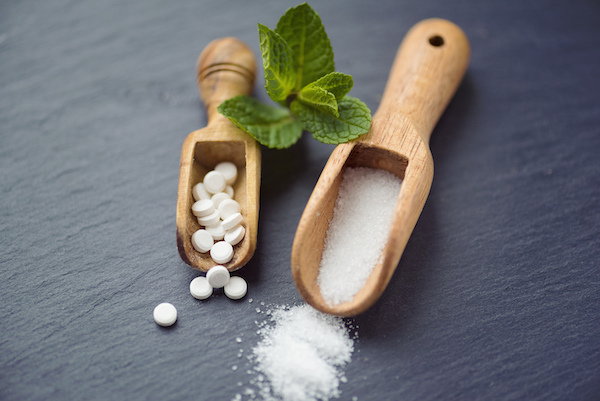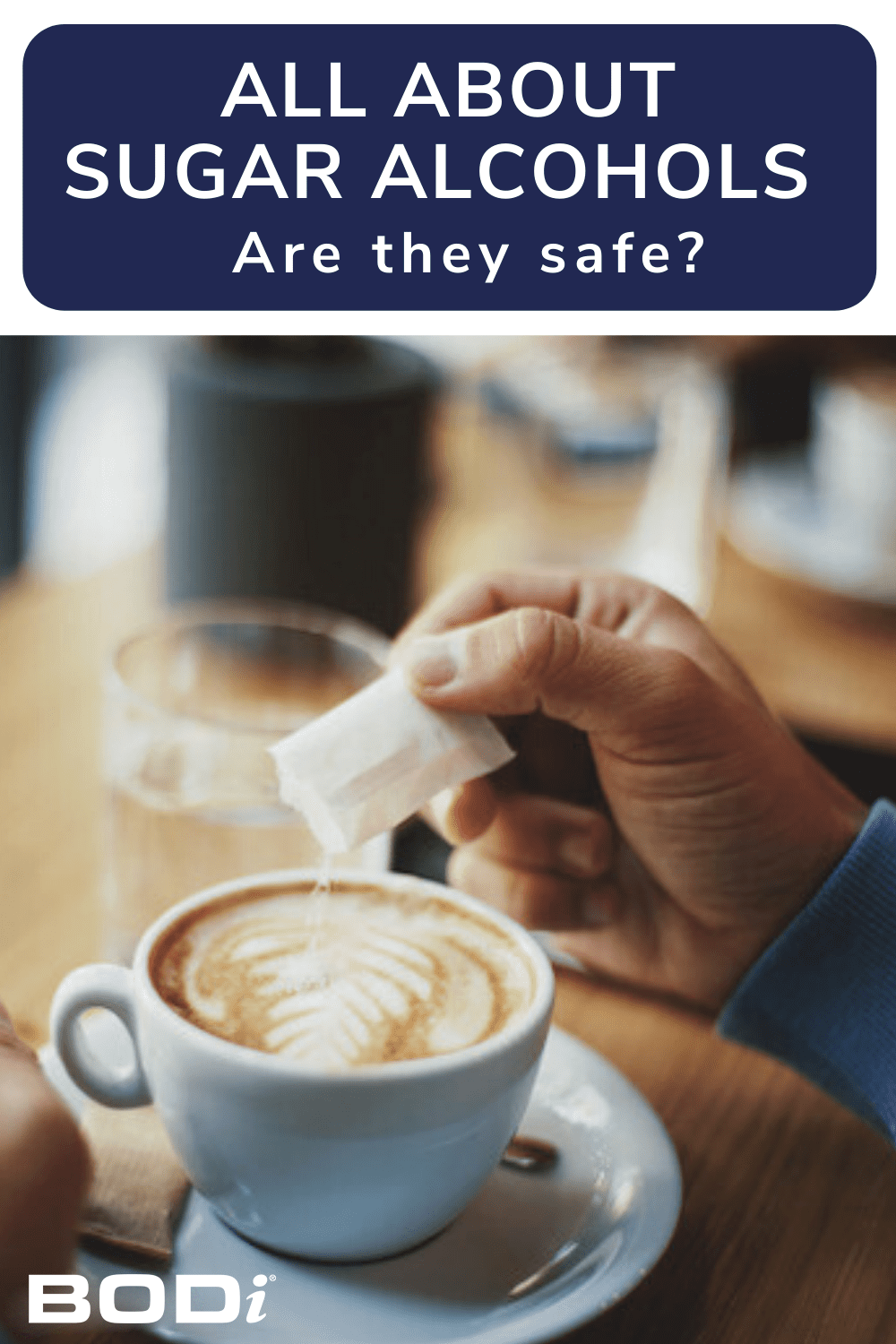Sugar alcohols are candy natural chemical compounds generally used as a sugar substitute. As a result of they don’t affect blood sugar in the identical manner common sugar does, they are often useful to people who need to management their blood sugar ranges or consumption.
Merchandise that embrace them are sometimes marketed as “low-carb” or “sugar-free.”
Right here’s what it’s worthwhile to find out about sugar alcohols — and whether or not or not these sugar substitutes are best for you.
What Is Sugar Alcohol?
“Sugar alcohols are sugar substitutes used as sweeteners in a wide range of merchandise, similar to sweet and gum,” says Natalie Allen, MS, RD, an teacher of biomedical sciences at Missouri State College.
Technically, they’re a part of a gaggle of short-chain carbohydrates often known as fermentable oligosaccharides, disaccharides, monosaccharides, and polyols — a.okay.a. FODMAPs. (Sugar alcohols are a part of the “P” — polyols.)
To identify them on a vitamin label, take a look at the top of every ingredient. In case you see an “itol” on the finish of it, meaning it’s a sugar alcohol — which is a little bit of a misnomer since they’re neither sugar nor alcohol. They’re, nonetheless, chemically processed synthetic sweeteners.
The low-calorie sweeteners could also be present in “sugar-free” variations of meals like sweet, chewing gum, cookies, pudding, weight-reduction plan sodas, and different sweets.
Sugar alcohols might also be utilized in meals merchandise for texture and moisture (and to stop browning throughout cooking).
Sorts of Sugar Alcohols
Sugar alcohols embrace:
- Erythritol (in sweeteners like Truvia)
- Isomalt
- Lactitol
- Maltitol
- Mannitol
- Sorbitol
- Xylitol
What Is the Distinction Between Sugar and Sugar Alcohols?
Sugar alcohols “present fewer energy than regular sugar, and the metabolism is just a little totally different,” Allen explains. Whereas sugar usually will get utterly absorbed in your small gut, sugar alcohols are incompletely absorbed there.
As a result of the physique doesn’t soak up sugar alcohols in the identical manner it metabolizes sugar, Allen says, they supply fewer energy than common sugar.
One sugar alcohol specifically, erythritol, comprises no energy, as a result of it’s excreted into the urine and doesn’t affect blood glucose and insulin ranges.
For instance, a teaspoon of granulated sugar has 16 energy. The identical quantity of xylitol powder comprises roughly half the quantity of energy, and a teaspoon of Truvia (erythritol) comprises zero energy.
Are Sugar Alcohols Dangerous for You?
“It’s actually okay to eat sugar alcohols, however don’t overdo it,” Allen says.
They’ll typically trigger bloating, fuel, and diarrhea as a result of they’re not utterly digested within the intestine and never utterly absorbed by your physique. That is what makes them decrease in energy than sugar, however it could actually additionally trigger some uncomfortable side effects.
And for folks with irritable bowel syndrome, FODMAPs on the whole have been associated with long-term gastrointestinal symptoms.
Analysis means that the uncomfortable side effects are extra seemingly when greater quantities are consumed.
Can You Eat Sugar Alcohols on a Sugar-Free Food regimen?
It is dependent upon the plan. Some sugar-free diets advocate eliminating them solely.
However people seeking to eat much less sugar and preserve higher blood sugar management might profit from sugar alcohols.
The underside line that sugar alcohols aren’t sugar “freebies.” They need to nonetheless be consumed carefully, and it’s necessary to think about the potential GI uncomfortable side effects.
In case you’re attempting to kickstart a sugar-free way of life, it’s possible you’ll discover it’s greatest to chop out meals sweetened with sugar alcohol.











